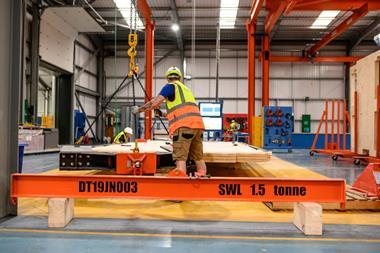While many of us have adjusted to a slower pace of life in lockdown (walking and cycling instead of taking the car or public transport, cooking with family rather than dining out or eating fast food, doing the gardening ourselves instead of paying someone else to do it or, in my case, not doing it), many of the trends governing the jobs we do, the way we behave and lives we lead have been turbo-charged.

It is little wonder ‘acceleration’ and variations thereof are the most frequently used words (yes, even more than ‘the new normal’) in the first in our special series of forecast features asking: “What happens next?”.
Every January, we publish an annual forecast for the year ahead. Now Covid-19 has burst the bubble of Brexit-related optimism or, more accurately, torpedoed it, this month, we asked leading industry lights to reforecast for the second half of 2020 and beyond.
The message throughout is: get ahead or at least keep up – or get left behind. Kontor’s James Townsend probably sums it up best when he quotes someone I never thought I’d see quoted once in Property Week, let alone twice, Russian revolutionary Vladimir Lenin, who remarked: “There are decades where nothing happens; and there are weeks where decades happen.”
It feels as though we’ve had quite a few such weeks lately. M7’s Richard Croft notes: “What might have taken five years to happen has occurred in 10 weeks.” Townsend talks of a “concentration of the next five years of progress within the span of a few months”.
So, what is in store over the coming weeks and months? While most agree the hospitality and leisure sector will be among the hardest hit, Palace Capital’s Neil Sinclair is not alone in believing “rumours of its demise may have been greatly exaggerated”. We are just too social a nation.
Distrkt’s Camilla Topham adds that while many businesses will not re-open their doors, others will and where “experience was relevant before, now it is fundamental”. Landlords that work with tenants to deliver that experience might even be better off – especially if, as Shelley Sandzer’s Ted Schama says, operators can retain some of the alternative revenue streams generated in lockdown.
Another sector that is down but not out is offices. There is a school of thought that companies will downsize and take less space in the future. I’m not so sure. Yes, people will continue to work remotely, reducing staff numbers in the office at any one time, but companies will still need space and as social distancing puts the kibosh on densification (one trend that is decelerating), they may even want more space.
Moreover, it will be a different sort of space. FORE Partnership’s Basil Demeroutis believes the crisis will teach us the value of the office “not just as a space to work, but to convene with colleagues and cultivate that sense of community that cannot be replicated online”.
He is right. Not everything can be replicated online and while it is true that, as Allied London’s Mike Ingall says, the industry will need to “create, make and manage like we never have before”, when has it ever balked at a challenge? It just needs to slam its foot on the accelerator.
































No comments yet